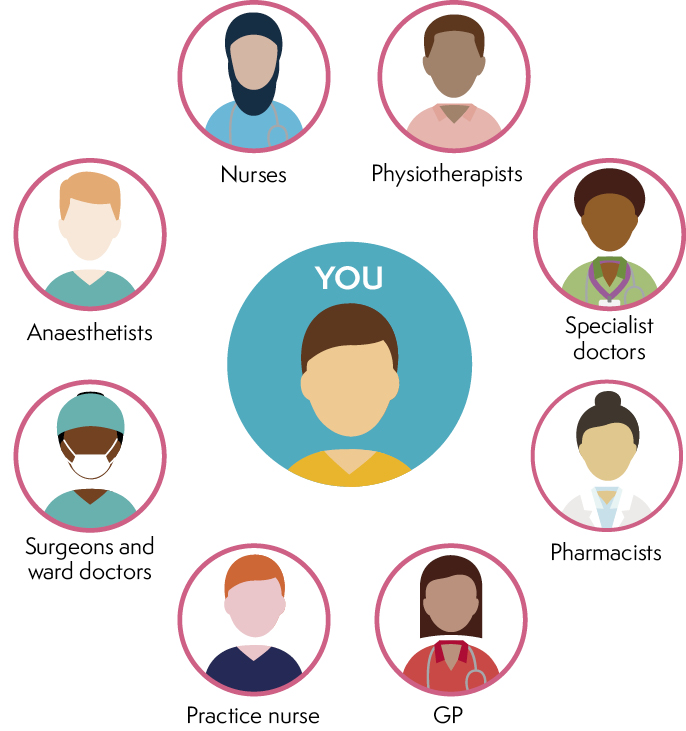Fitter Better Sooner
Your role in preparing for surgery
Having surgery is a big moment in your life and it’s normal to feel anxious about it.
Fitter patients who are able to improve their health and activity levels recover from surgery more quickly. What you do now can have a really big impact on your recovery.
Taking an active role in planning and preparing for your operation will help you feel in control, leave hospital sooner and get back to normal more quickly. Waiting times for surgery may be longer in some areas, but you can use this time to prepare for your surgery.
This information will give you general advice on what you can do to get the best outcome from your surgery.
A patient story by Roger (not his real name)
I was overweight and a lifelong smoker. The surgeon and anaesthetist had already told me that my surgery would be more difficult and that I would need to stay in the High Dependency Unit (HDU) afterwards, which might delay the date of my surgery if a bed wasn’t available.
My anaesthetist spoke to me about some changes that I could start to make to help my recovery and encouraged me to read the information in Fitter Better Sooner and watch the animation. That evening I watched the animation with my family. My daughter knew how worried I really was. They encouraged me to have a go at making some lifestyle changes.
I had wanted to stop smoking for a long time but never had the will to go through with it. It was hard, but eventually I managed. I also decided to start walking and tried to walk slightly further each day. Before I only walked somewhere if I really had to, but I really started to enjoy it. I felt myself get fitter and also got to know the people living in my area.
I have diabetes but I’d not taken it very seriously. I made an appointment at the GP surgery. The nurse helped me understand more about what food I should eat to better control my diabetes and encouraged me to gradually lose some weight. She gave me a machine to help me keep an eye on the sugar level in my blood. I lost 4kg in the six weeks before my surgery. Feeling healthier and fitter gave me a lot more confidence going for my surgery. I had been quite depressed and worried about it before.
After my op I was on the HDU for a day and then back to the ward. I was in hospital longer than I should have been, because my wound did not heal well at first, but I had no serious complications. The physio at the hospital gave me breathing exercises and encouraged me to walk around the ward to keep active and speed up my recovery.
Three months after my op I am still feeling the benefits of the changes I have made. I don’t need my inhaler as often as I used to and I find it easier to walk up the stairs. I still love my walks, my weight keeps dropping and I feel much more optimistic about the future.
The healthcare team
Many staff from different healthcare professions will work together to make your surgery and recovery go smoothly. They will look after you before, during and after your surgery. This is often referred to as the perioperative team. But it all starts with you.
You will meet many people along your surgical journey. Below are some members of the perioperative team:

